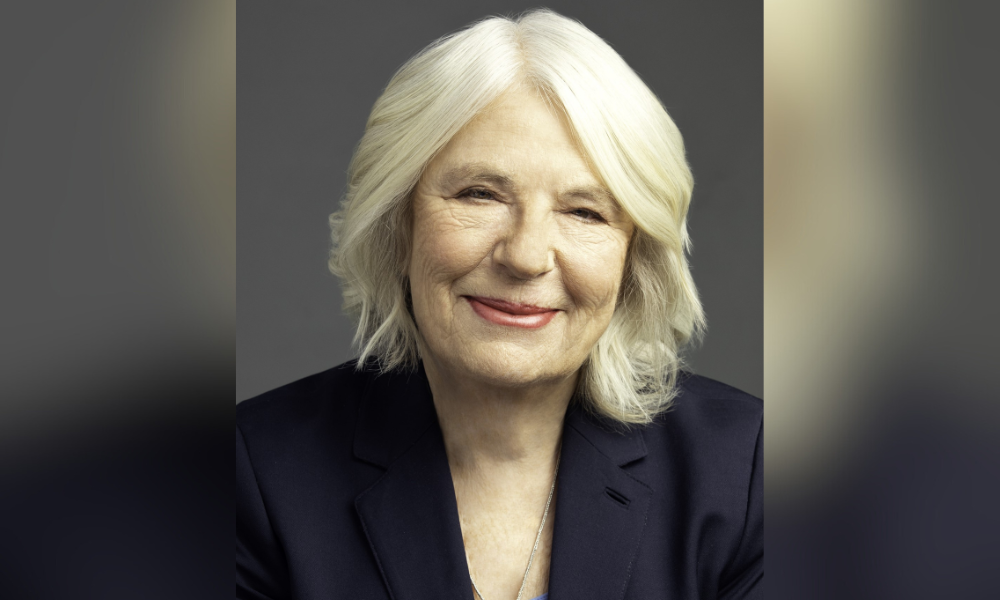
The OBA and a former LSO bencher sent letters to the legal regulator criticizing its proposed reforms

As the Law Society of Ontario continues to accept feedback about proposed reforms to its governance model, stakeholders are weighing in with takes that range from accusing the LSO of trying to stymie political discord to suggesting that the organization reserve bencher seats for lawyers from diverse backgrounds.
In a Feb. 18 submission to the LSO, the Ontario Bar Association recommended tweaks to some of the proposed changes.
One of these changes – decreasing the proportion of elected lawyers on the LSO’s governing board while upping the proportion of appointed benchers – has garnered criticism from multiple stakeholders in Ontario’s legal community, including OBA president Kathryn Manning. In its submission, the OBA noted that one of the reasons the LSO cited for the controversial change was to increase the diversity of its governing board, also known as Convocation.
The OBA suggested that instead of decreasing the overall proportion of elected benchers, the law society could reach its diversity goal by designating a certain number of bencher seats for lawyers “with lived experience in an equity-deserving group.” These lawyers would be elected by their peers or through recommendations from legal organizations that represent equity-deserving communities.
In a report outlining its proposed changes, the LSO had cited concerns about how the current size of Convocation – 54 bencher seats – impacted its efficiency. The OBA suggested that instead of reducing the number of bencher seats, the LSO should create a “small executive” of benchers that “would be more agile and could deal with operational and day-to-day matters while leaving policy decisions to Convocation.”
The OBA also addressed the law society’s proposed changes to its voting regime. Under the current system, licensees can vote for all 40 elected lawyer positions in Convocation.
The LSO proposed two possible changes: allowing licensees to cast a single vote or allowing them to cast as many votes as there are candidates in the region where they practice.
The OBA noted that because the LSO wants to assign a single elected lawyer position to some regions, lawyers practicing in those regions would only be allowed to cast a single vote. In Toronto, the region with the most representation at Convocation under the proposed changes, lawyers could cast a maximum of four votes.
“One of the reasons cited for the change is preventing coordinated and group voting and a lack of connection between the voters and candidates they vote for,” the OBA wrote. “Limiting licensee votes may have the effect of preventing coordinated voting, but it would only achieve this by taking away the democratic will of the bar.”
The OBA added, “To be clear, we are not saying that group campaigning or voting is desirable, but the methods sought to minimize it are not. We think that issue should be addressed directly and not through indirect means that raise a plethora of fundamental issues.”
In another submission to the LSO dated Jan. 31, Cheryl Lean, who served as a bencher from 2019 until 2023, noted that under the law society’s current rules, she is next in line to take over if a bencher located outside of Toronto leaves their position.
Under the LSO’s proposed changes, vacancies would be filled via elections instead. Lean argued that the proposed policy would delay the process for filling vacant bencher seats, impose more expenses on candidates and the LSO, and prevent sole practitioners and small firm lawyers from participating.
“The feasibility of LSO by-elections has not been properly explored. It is enough that the profession has an election every four years. There is little interest in having more elections,” Lean wrote. “I can only conclude this policy is being implemented this year in ‘bad faith’ to preclude the appointment of members of the opposing slate in 2023.”
Lean was a member of the FullStop slate, one of two groups that define the political makeup of Convocation. In 2023, the opposing Good Governance slate swept the bencher election. Vacancies left by those benchers have since been filled by FullStop members.
Her letter suggested that in place of the proposed reforms, “a much better and likely more economic option for the profession is to ask the Ministry of the Attorney General to take over regulation of the profession.
“If that were the case, lawyer’s access to LSO information (now kept secret, even from benchers) would be greatly enhanced through the “Access to Information” legislation,” Lean wrote. “In addition, the salaries of the CEO and LSO executives would become public information.”
On Monday, Lean clarified that she is not advocating for the government to take over the LSO’s role. However, she says that government regulation would be preferable to the LSO’s proposed reforms.
“I believe that that would be much cheaper,” she says, noting that LSO CEO Diana Miles, currently embroiled in controversy over a significant salary hike, earns more than Ontario’s attorney general. She added, “I would think that there'd be less interference by the law society into different lawyers’ lives.”
In a statement on Monday, the LSO said, “We thank all stakeholders for participating in this consultation. The input of the legal professions, stakeholders and the public is critical to this process.”
The law society added that its governance review task force will review the feedback and provide recommendations for Convocation to consider.